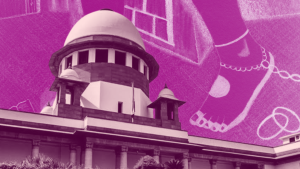Resistance to change
The Supreme Court in the Githa Hariharan judgement in 1999 recognised the mother as a natural guardian, but only in the absence of the father. The ABC v. State (NCT of Delhi) judgement in 2015 stated that a single/unwed mother’s name can be named on documents such as school admission forms and passports, without additional details about the father.
The latest judgement in this regard came on July 19, 2022 from the High Court of Kerala. It passed an order recognising the right of a child to specify only the mother’s name on identity certificates, birth certificates and other such official documents. The court stated that the rights recognised under Article 21 — the right to privacy, dignity, and liberty – cannot be infringed or curtailed by any authority by demanding details of the father in cases where he is absent or unknown.
This judgement does not confer a new right, but only recognises what has already been held by the apex court in the ABC judgement, said legal scholar Mandal. “The matter that was before the Kerala High Court is an example of a percolation failure, wherein though the law has been changed, authorities refuse to change the requirements on forms. This could be because they may not be aware of the change or there is some resistance to change owing to the patriarchal notions of guardianship.”
Limited right of guardianship
The popular perception is that the Githa Hariharan judgement recognised the mother’s equal right to guardianship but this is not the case, argued Surbhi Karwa, a researcher on law and gender.
“The judgment in the case of Githa Hariharan only creates an equalising factor; its scope is limited. The court only called for an expansive interpretation and stated that the father’s absence is not just to be read as his passing or permanent absence but also temporary absence or his apathy or inability to be a guardian,” says Karwa. “In light of this, only a limited right of guardianship is given to the mother – after the father or in his absence. And if the mother’s details are given as guardian, valid reasons are to be given to the concerned authorities.”
In cases where both parents are present, or the marital status of the parents is undecided, or if the child has been abandoned by the father or if the applicant chooses not to provide the father’s details for any reason, the decision has to be justified through an affidavit.
In 2018, the Ministry of Finance amended the PAN card application form allowing details of just the mother if she is a single parent. However, the mother’s name is optional if the father’s is provided but the reverse does not apply.
Legislative gap
There have been several public interest litigations and petitions (here and here) before the Supreme Court and several high courts challenging the mandatory requirements of father’s details. In all these cases, single mothers were granted relief. The courts also pushed concerned states to amend rules governing the subject.
The issue of guardianship, like other matters related to familial relationships, is governed by personal laws applicable to a citizen. The Hindu Minority and Guardianship Act, 1956 names the father as the “natural guardian” of a child born to a married couple. The mother becomes the guardian where the father is not present, that is, he cannot or will not take responsibility for the child.
The mother is also the guardian if the child is born outside of a wedlock. Under the Muslim personal law, the guardian of a child born within a marriage is the father, but for a children born outside of marriage, the mother is the guardian. Christians and Parsis are governed by the Guardians and Wards Act (GWA), 1890 since their personal laws do not provide for guardianship.
GWA is the general law on the matter, which was amended in 2010 to provide for equal guardianship of both the mother and the father. But the law required that in cases before them, the courts should primarily consider the welfare of the child while also ensuring adherence to the relevant personal law. The personal laws take precedence over the general law under the GWA.
“There still remains a legislative gap in recognising mothers as equal guardians of the child. These petitions have led to some practical solutions to the issues presented before the courts. [But] The larger issue of equal guardianship has remained unaffected and unresolved,” said Mandal.





